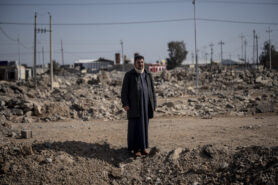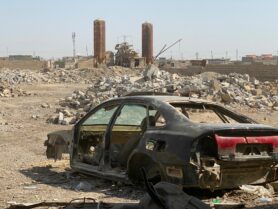In the same week that IRW launched its joint report ‘After the Strike’ that proved the civilian harm consequences of the 2015 Dutch bombing of Hawija were much bigger than thus far was thought, the Dutch Minister of Defence announced policy changes aimed at minimizing civilian harm and improving transparency before, during and after Dutch military operations.
In the letter to parliament, the minister referred to the contribution made by a consortium consisting of civil society organizations PAX, Airwars, Amnesty International, Open State Foundation, and Intimacies of Remote Warfare.
This consortium was formed in 2019 after its members learned about the 2015 Dutch bombing of Hawija. They aimed to initiate debate and review the way in which the Dutch state deals with civilian harm caused during its military operations. Following commitments by the Minister of Defence to review Dutch transparency and accountability practices, the Ministry of Defence and the consortium agreed to engage in the “Roadmap Process”, with the goal to stimulate and inform policy change.
In a joint statement, the consortium now responds to the policy changes published by the minister. They conclude that while improvements must be recognized, many gaps still remain.
At IRW, we argue that a focus on these gaps is vital, especially now that the Dutch House of Representatives seems to be clearing the way for arming the four MQ-9 Reaper drones it received in the past year.
Building on the well-founded assumption that using (armed) drones will lead to more war and civilian harm instead of less, combined with the fact that research by IRW, PAX, and Al-Ghad proved that the Dutch state failed to gather sufficient evidence both before and after the airstrike on Hawija, we strongly believe that the Dutch House of Representatives should not consent to arm its drones as long as the Dutch defence organization has not proven to have a sustainable transparency policy vis-a-vis civilian harm.
Read the full statement here:



